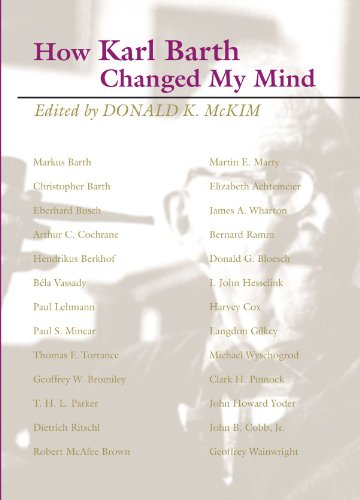Defending and Declaring the Faith: Some Scottish Examples 1860–1920
Written by Alan P. F. Sell Reviewed By A. T. B. McGowanThis book is a contribution to historical theology. Dr Sell takes a sixty-year period and analyses the way in which a select group of theologians grappled with the issues facing them, issues both theological and philosophical.
His ‘sample’ is a group of eight famous Scottish theologians. They are: John Kennedy of Dingwall (1819–84), Robert Flint (1838–1910), John Caird (1820–98), A. B. Bruce (1831–99), James Iverach (1839–1922), James Orr (1844–1913), D. W. Forrest (1856–1918), and James Denney (1856–1917).
The author chose those sixty years because they represent the period from Darwin to Barth. He chose the theologians on the basis of several criteria including the fact that they were all Presbyterians and that they were representative of many strands within the Scottish Presbyterian tradition, as well as the more obvious fact that they were all scholars of the first calibre.
The author’s own summary is most helpful: ‘We find that Kennedy, staunchly confessional, is in many ways a seventeenth-century man; Flint, though alive to the swirls of evolutionary thought, is often methodologically reminiscent of Butler. By contrast Caird is the pre-eminent example of a theologian who sought to express Christian truth in terms of the prevailing philosophical idealism. Iverach stands on the frontier between theology and science, and while learning from idealism, brings a dose of Scottish common sense to bear on it. Bruce and Orr pursue the apologetic path—the former more biblically, the latter more historically and dogmatically; and Forrest and Denney probe the christological and soteriological heart of the Christian faith.’
In assessing this book there are, perhaps, six comments we might make, the first three being positive and the next three being negative.
- For anyone who wants to understand the period in question this book is indispensable. It is clear, and it is based on a wide acquaintance with the source material. The notes, and especially the bibliographical details in the notes, are worth a great deal to the student of the period.
- Some of these writers are known for one or two aspects of their thinking. The way in which Dr Sell has given a rounded and composite picture of their scholarship is admirable. Many who, for example, know of Denney primarily through his doctrine of the cross will be interested to see how this related to other major aspects of his thinking.
- Dr Sell’s work is valuable in terms of method. This is to say, it teaches us to evaluate the work of theologians not purely in terms of their adherence to certain pre-determined schemes of thought (or Creeds and Confessions) but in terms of their intrinsic thought. In other words, to avoid analysis by ‘label’ and instead to examine the integrity and self-consistency of each author. This gives his work a depth which it would not otherwise have, albeit that we reserve the right to disagree with some of his conclusions.
- It is a pity that the biographical introductions were not more fully detailed. The author rightly points out that his purpose was to give only sufficient information to ‘earth’ the thought of the writers, and no doubt the importance of the theological and philosophical issues left little space for this, but it would have made the volume far more useful to the reader who is less familiar with these scholars.
- The treatment given to John Kennedy of Dingwall betrays a theological bias which is unparalleled in the treatment given to the other scholars, although the author’s remarks about McLeod Campbell in his introduction, together with Prof. Torrance’s preface, might have led us to expect as much.
- The depth of detail entered into on the philosophical views of some of these men (particularly Caird) will make the book less helpful for students who themselves are not well versed in the language, literature and indeed history of philosophy.
Having made these positive and negative points it must be said in finishing that, while this book is important and worth reading, it is quite a ‘heavy’ book which requires considerable effort from the reader, and considerable time should be allocated if one is to get the best out of it.
A. T. B. McGowan
A. T. B. McGowan
University of the Highlands and Islands
Inverness, Scotland, UK







